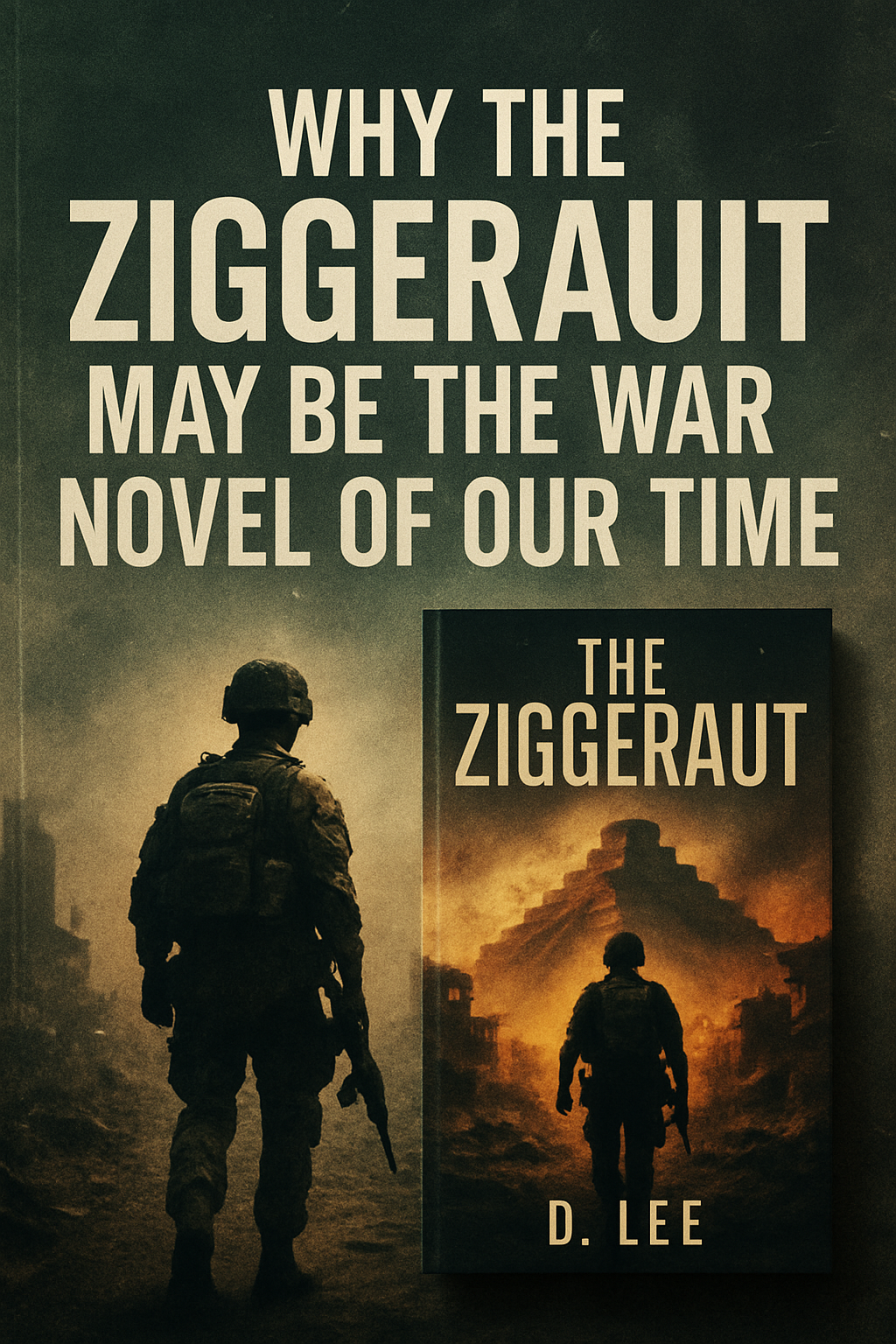In an over-saturated literary market of post-war introspection, thrillers, and political novels, D. Lee’s The Ziggeraut comes crashing down like a bolt of lightning dazzling, provocative, and more than needed. But why, almost two decades after the height of the Iraq War, is this book being touted as a war novel that defines our times?
Here’s why.
- It’s Written From the Trenches Literally
- Lee didn’t write about war; he experienced it. The initial draft of The Ziggeraut was composed on a laptop between deployments while he was stationed in Iraq. This up-close-and-personal experience seeps onto the pages with a quality that no writer sitting at a desk can duplicate. The odors, the waiting, the apprehension before and relief after the fight it’s all there, unflinching and disturbing.
- A War Novel That’s Brave Enough to Cross Genre While nearly all war books stay close to history or politics, The Ziggeraut ventures into the paranormal. But not in a sense that’s otherworldly. Rather, the paranormal features heighten the psychological burden of the characters’ trauma. The titular ziggurat, a genuine Mesopotamian location, is a sign of something older and more sinister than war itself an ancient evil entombed in the dunes, stirred up by contemporary war.
- It Captures the Subterranean Terrors of Veterans’ Lives Through protagonist Teddy Chesterson a survivor of a cryptic massacre Lee nails the tormented, fractured mental landscape so many veterans suffer. Chesterson is no Hollywood hero. He’s a youth, terrified, and saddled with unimaginable knowledge. The outcome is not only heartbreaking but achingly familiar.
- The Moral Pit of Government Secrecy One of the best things about this novel is its uncompromising examination of the military-industrial complex. The fictional ASPD unit (Alien, Supernatural, and Psychic Development program) mirrors actual black ops and covert programs. In Brenner and Hernandez, we meet men who operate by rules most civilians would find horrifying. Their moral math is a cold cautionary tale of what occurs when institutional cover takes precedence over individual humanity.
- It Has the Potential to be a Cult Classic With its blend of speculative terror, clandestine operations, and emotionally charged character development, The Ziggeraut has all the signature elements of a sleeper hit. It doesn’t attempt to be tidy or reassuring it unsettles. And that’s what war should do. Lee’s language is concise, his scenes filmic, and his world engrossing enough to capture the attention of fans of Stephen King, Don DeLillo, and even The X-Files.
Final Thoughts the war genre has always existed as a reflection of national memory. With The Ziggeraut, D. Lee reminds us that some memories are best left alone but once uncovered, have to be confronted. In so doing, he has given us a daring, timely, and unmissable work.
No matter whether your taste runs to military thriller, speculative fiction, or psychological drama, The Ziggeraut contains something more profound: a confrontation of the past we believe we understand and the terrors we pray will never recur.
